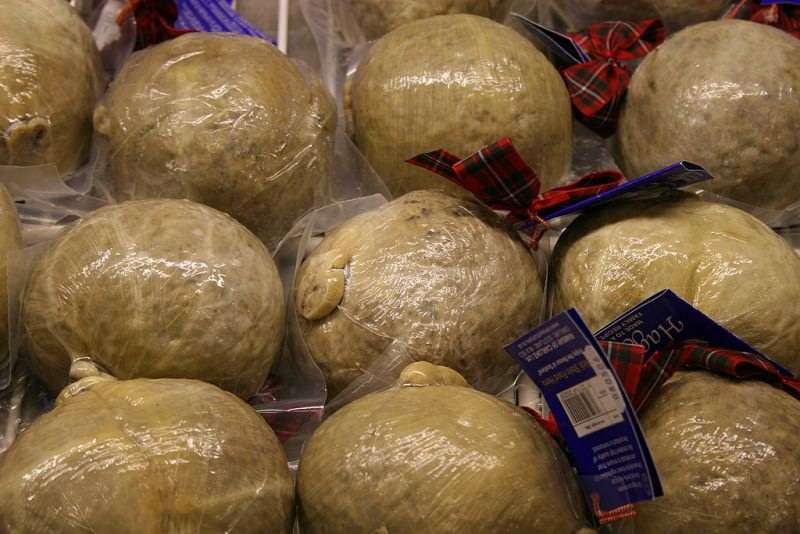Baylen Linnekin on the Campaign to Free the Haggis

Haggis is the sort of food that some people love to mock, and others love to eat—if they have the stomach for it (and other unlikely ingredients). But authentic haggis contains lungs, and their use in dishes prepared for humans has been forbidden in the United States since 1971.
Well, that just gets the Scots' tempers in an ferment, and they've enlisted the British government to push once again to overturn the ban. Frequent Reason contributor Baylen Linnekin has the story over at Vice:
The reasoning behind the USDA's ban on lungs is generally couched in terms of food safety. Fluids—specifically, ones that might make you squeamish, including stomach fluids—sometimes make their way into the lungs of an animal during the slaughtering process.
An 1847 treatise recommends parboiling the lungs "to permit the phlegm and blood to disgorge from the[m]," one issue the USDA regulations sought to address.
The USDA ban has succeeded not only in halting the import of authentic haggis prepared in Scotland, but also on the sale of sheep lungs for use in haggis made in this country.
Notably, the US ban doesn't just target haggis. While often painted as a "haggis ban," the USDA rule also bans traditional lung-containing dishes from a variety of cultures, including those common to China, Nepal, and several European countries.
Linnekin notes that the British government's participation in an effort to overturn this particular U.S. food rule may well be driven by a desire to influence the upcoming vote on Scottish independence. But if political pragmatism expands your right to choke down an authentic national delicacy seemingly invented on a dare, so be it!


Show Comments (64)